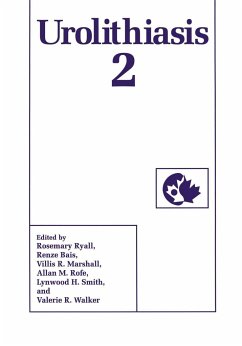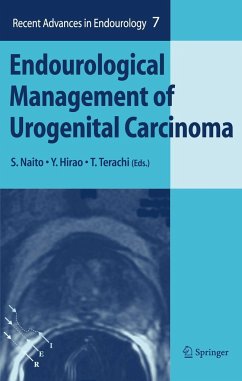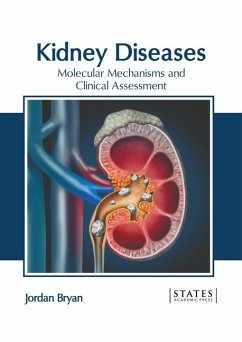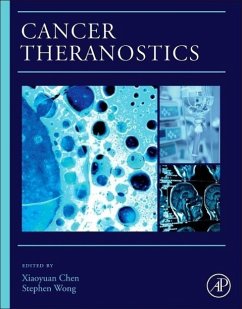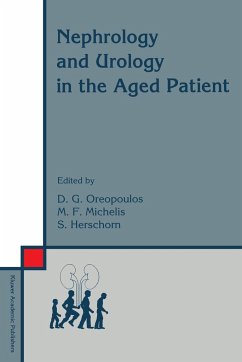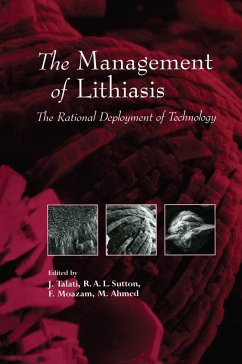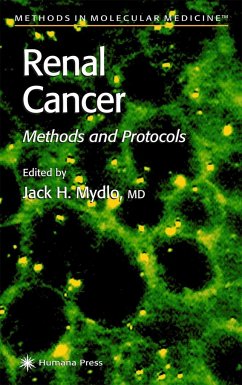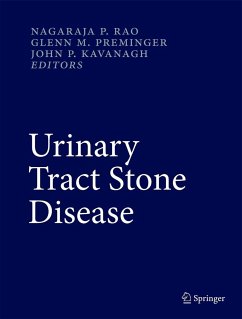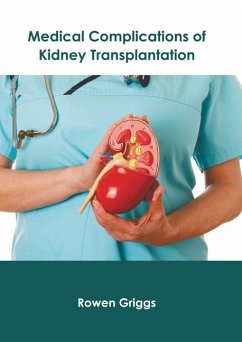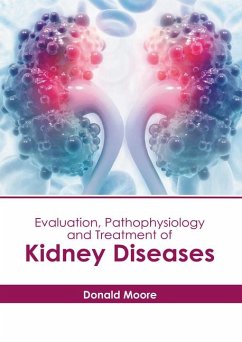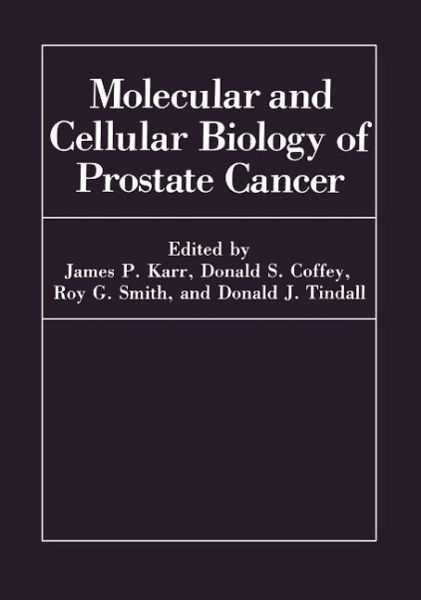
Molecular and Cellular Biology of Prostate Cancer
Versandkostenfrei!
Versandfertig in 6-10 Tagen
61,99 €
inkl. MwSt.

PAYBACK Punkte
31 °P sammeln!
I. Intracellular Communications.- Tissue Specificity and Cell Death are Associated with Specific Alterations in Nuclear Matrix Proteins.- Mechanism of Growth Regulation in Androgen Responsive Cells.- The Impact of Androgen, Extracellular Matrix, and Stroma upon Proliferation and Differentiation of Benign and Malignant Prostate Epithelial Cells.- Therapeutic Approaches to Activating Programmed Cell Death of Androgen-Independent Prostatic Cancer Cells.- Cell Motility and Structural Harmonics in Prostate Cancer.- Panel Discussion.- II. Growth Factors - 1.- Studies of the Endocrine and Paracrine E...
I. Intracellular Communications.- Tissue Specificity and Cell Death are Associated with Specific Alterations in Nuclear Matrix Proteins.- Mechanism of Growth Regulation in Androgen Responsive Cells.- The Impact of Androgen, Extracellular Matrix, and Stroma upon Proliferation and Differentiation of Benign and Malignant Prostate Epithelial Cells.- Therapeutic Approaches to Activating Programmed Cell Death of Androgen-Independent Prostatic Cancer Cells.- Cell Motility and Structural Harmonics in Prostate Cancer.- Panel Discussion.- II. Growth Factors - 1.- Studies of the Endocrine and Paracrine Effect of Tumor Produced Factors in Human Genitourinary Cancers.- Fibroblast Growth Factor: Implications in the Etiology of Benign Prostatic Hyperplasia.- Fibroblast-Mediated Human Epithelial Tumor Growth and Hormonal Responsiveness In Vivo.- Polyamine Requirement of Prostate Cancer Cell Proliferation.- Heparin-Binding (Fibroblast) Growth Factor/Receptor Gene Expression in the Prostate.- Characterization and Partial Purification of a Non - Heparin-Binding Prostate Growth Factor From Cancerous Human Prostate.- Panel Discussion.- Growth Factors - 2.- Transforming Growth Factor a: A Potential Autocrine Growth Regulator in Prostatic Carcinoma.- Prostatic Growth Factors (PrGFs) - From the Identification of Probasin to the Role of PrGFs.- Urogenital Sinus Derived Growth Inhibitory Factor.- Growth Factor Antagonists in Prostate Cancer: Suramin and Cytotoxic Polyamines as Potential Therapy.- Transforming Growth Factors in Human Prostate Cancer.- Gene Products as the Motivating Force in the Prostate Cell's Response to Androgens.- Panel Discussion.- III. Steroid Receptors.- Molecular Biology of Prostate - Specific Antigen.- Structure and Expression of the Androgen Receptor in Normal Tissues and in Prostate Carcinoma Cell Lines.- Structural Analysis and Gene Expression of TR2 Receptor and TR3 Receptor.- cDNA Cloning, Antibody Production and Immunohistochemical Localization of the Androgen Receptor.- New Approaches to Studies on the Androgen Receptor.- Specific Receptors for Vitamin D3 in Human Prostatic Carcinoma Cells.- Panel Discussion.- IV. Poster Presentations.- Role of Androgens and Extracellular Matrix in the Growth and Differentiation of Benign and Malignant Prostatic Epithelial Cells.- Tissue Specificity and Cell Death Are Associated with Specific Alterations in Nuclear Matrix Proteins.- ElTect of Transformation on Rat Prostatic Fibroblasts: Alterations In Extracellular Matrix and Cytoskeleton Gene Expression with Retention of Androgen Responsiveness and Androgen Receptor Expression.- A Potential Role for the MDR-1 Gene in the Development of Androgen-Independent Tumors.- Relevance of Low Androgen Levels and Adrenal Androgens in the Growth of Transplantable Human Prostatic Carcinomas.- Growth-Stimulating Effect of Growth Factor(s) from Androgen Independent Tumor Cells (CS 2-Cell) on Androgen Responsive Tumor Cells.- The Cellular Form of Human Prostatic Acid Phosphatase May Function as a Phosphotyrosyl Protein Phosphatase in Cells.- Expression of Prostate Antigen in LNCaP Cells in Culture.- Allelic Expression of the Mouse Ren-1 Genes in the Anterior Prostate (Coagulating Gland).- V. Dna Structure and Gene Expression.- Genomic Alterations in Prostatic Cancer.- Regulation of Gene Expression in the Prostate.- Androgen Regulation of HBGF I-(aFGF) and Characterization of the Androgen-Receptor mRNA in the Human Prostate Carcinoma Ceil Une - LNCaP/A-dep.- DNA Methylation, Differentiation and Cancer.- Evidence for tbe Involement of Genetic Differences and Mesenchymal Factors in the Progression of Oncogene - Induced Prostate Cancer in Reconstituted Mouse Prostate.- Differential Hybridization Analysis as a Tool to Study Prostatic Cancer Metastasis.- Molecular Biology of Androgen Acceptors in Prostatic Cancer Cells.- Panel Discussion.- Panel Discussion.- Panel Discussion.- Panel Discussion.- Panel Discussion.- Contributors.





